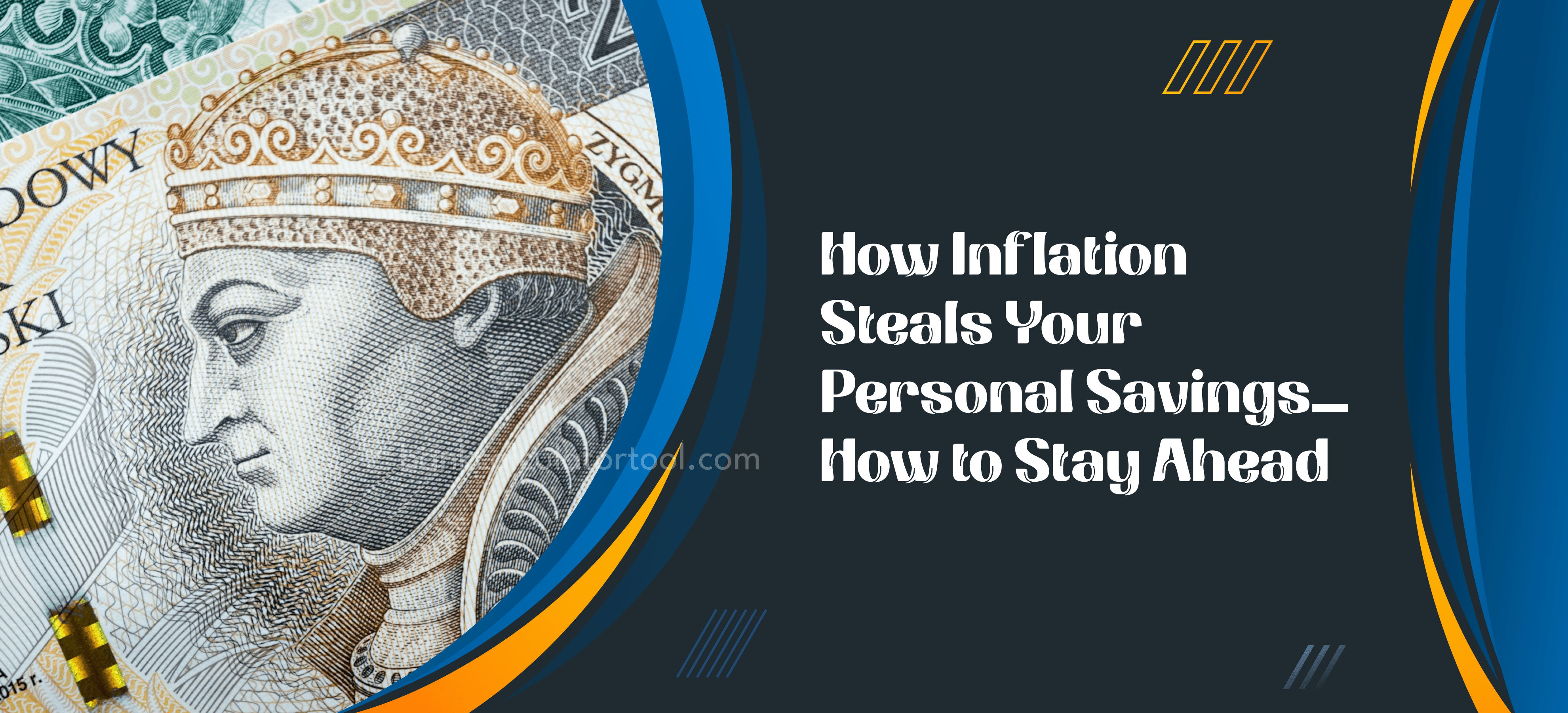Is there something at the grocery store that is your favorite snack, that just about every year you notice going up in price? Or how filling up your car with gas seems to take a bigger bite out of your wallet? If so, you’ve seen firsthand how inflation works.
But do you know it can also hit your personal savings very hard? Well, usually, when people hear of inflation, the image that comes into their minds is that of price increases, but it is just the same way when the value of money that one keeps is going down.
You keep $100 today, and in years, it turns out to be worth so much less. That is how inflation happens, but you can manage not to fall behind!
In this blog, we would talk about how inflation affects savings and how one can protect the hard-earned dollars.
Table of Contents
What is Inflation?
First things first—what exactly is inflation? In simple words, inflation means the rate at which the general price level of goods and services in an economy increases in a particular time period. When there is inflation, with each passing day, you get lesser products, services for the same currency.
Take, for instance, something that today costs $100; if the rate of inflation is 3% per annum, next year it will cost $103. That does not seem much, but over time, inflation can greatly erode your buying power.
How Inflation Affects Your Savings
Now that you know what inflation is, the next step would be to figure out how it really affects your savings. Suppose, for example, you have $1,000 in a savings account earning interest of 1% per year. In one year, you would have $1,010, but since inflation is 3%, the actual value in purchasing power of that $1,010 would be less than that $1,000 you had initially saved! You may be earning interests, but this inflation is merely gnawing at the value of your money. Why does this matter?
Reduced Purchasing Power
As the prices go up, the quantum of goods and services your savings can purchase comes down. That is, money saved years ago will buy much less in the future.
Eroding Value
In case of an interest rate on your savings account being less than the rate of inflation, you are practically losing money. Savings grow nominally; their real value goes down.
Long-term Effects
Even low inflation over long periods of time can powerfully impact what your money is worth. This becomes particularly important if you save for something far in the future, such as retirement.
Tips to Beat Inflation
Now that you know how inflation impacts your savings, you might wonder what you can do about it. Here are some tips to keep you ahead of the game:
1. Invest Wisely
The best hedge against inflation is investment into those assets that tend to outperform inflation. Stock, real estate, and some sorts of bonds do good because returns over the long term outstrip inflation.
Stock Market
Historically speaking, the stock market has outpaced inflation. The risk can be minimized a little in stock investing due to diversification.
Real Estate
Real estate appreciates over time and is a good hedge against inflation—be it investment in property or a portfolio of REITs.
Inflation-Indexed Bonds
Certain bonds, like Treasury Inflation-Protected Securities, are indexed to inflation. This means that with every increase in the Consumer Price Index, their value inflates to keep your purchasing power intact.
2. Give High-Interest Savings Accounts a Second Look
Not all savings accounts are equal. Traditional savings accounts tend toward interest rates lower than the rate of inflation. But some high-interest savings account options for certain banks may help you at least keep pace with inflation.
Online Banks
Most online banks give better interest rates compared to their brick-and-mortar brethren. These better rates can afford some protection from the inflationary erosion of savings.
Certificates of Deposit (CDs)
If you can afford not having access to money in a hurry, a CD offers the possibility of getting higher rates compared to standard savings accounts. Of course, this is just because of the fact that all your money will be tied up for a period of time.
3. Commence Inflation Budgeting
It is not just your savings that inflation hits, but it actually does a number on your daily expenses, too. Reposition your budget to accommodate price hikes.
Track Your Spending
Monitor your spending, especially in those items most highly inflated—such things as groceries, gas, and utilities. This may help you identify where you can cut back on spending.
Adjust Your Savings Goals
If you have a goal for saving that is long-term, such as purchasing a house or retiring, you should consider inflation in your savings plan. You could find you need to save more than originally thought to achieve the goal.Our Savings Goal Calculator can help you adjust your targets.
4. Diversify Your Savings
The concept is simple: Don’t put all your eggs in one basket. You can hedge the inflationary risk by diversifying your savings across a variety of account types and investments.
Diversification of Accounts
Consider keeping a portion of your money in a high-interest savings account, a portion in investments, and a portion in other inflation-protected assets. You don’t want to depend upon one particular kind of asset.
Re-think Periodically
The inflationary rate will change, and so it will be important to reassess, every now and then, the strategy you have adopted for your savings. Make changes as and where needed so that you can stay ahead.
Conclusion
Inflation is real, but that doesn’t have to knock down the bars for your savings goals. Knowing just how inflation works and proactive steps of protection will keep you ahead of the game and ensure that your savings retain their value with time.
Be it through investment in the stock market, opening a high-interest savings account, or paying more attention to the budget department, there is certainly no shortage of means through which one can secure his or her financial future. So, don’t let inflation chop into your savings!
Smarter financial decisions now mean you’re already halfway to staying ahead of the curve.

